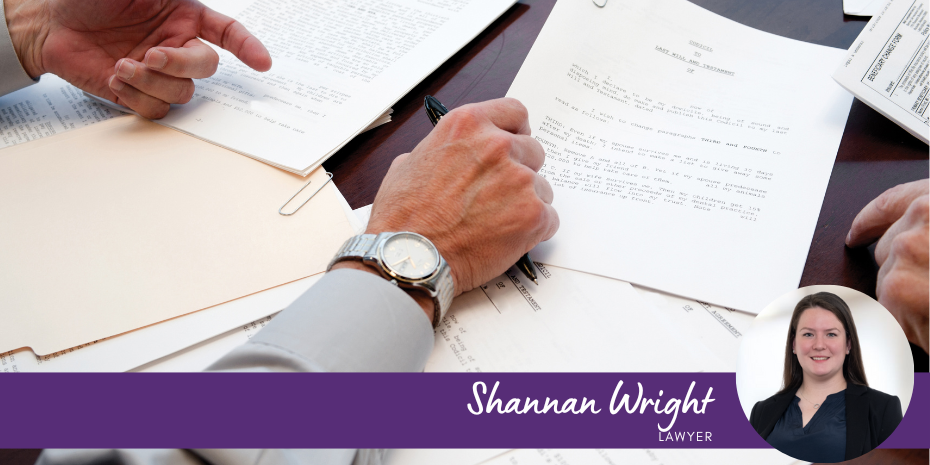A will is a legal document that sets out your wishes for what you want to happen with your estate assets after you have passed away. Ensuring that your will is well structured, clear and up to date is very important, as it will be more likely that your assets will go to who you want them to. Most people have some idea about what they would like to happen with their estate once they have passed. Whether you decide to leave your assets to your children or your favourite charity, it is important that you ensure the will you make is valid so that who you want to benefit will actually happen.
Why Should I Make A Will?
We understand that making a will can be a very difficult document for a person to create. However, some reasons it is a good idea to make a will include:
- To express your wishes and intention for what you want to happen with your estate assets once you have passed;
- To provide adequately for the people that you care about, especially when considering blended families or other people who you wish to inherit from you;
- To make it less likely for a dispute to arise; and
- To avoid the delay and cost of administering an estate when passing without a valid will in place (also known as dying intestate).
Legal Requirements for the Will
In New South Wales, for a will to be considered valid it must be:
- In writing;
- Signed by the will maker on every page of the will (or by a person the will maker has directed to sign on their behalf in their presence if they are physically unable to sign it themselves); and
- Witnessed by at least two people at the same time the will maker signs the document. The witnesses must also sign each page of the will to confirm that they were present and witnessed it.
However, there are also requirements regarding the two witnesses. Unless certain circumstances apply, the witnesses cannot be listed as a beneficiary under the will and they cannot be a person who is unable to see.
Capacity and Intention
If you are a person who wishes to make a new will, you must have the legal capacity to do so. What this means is that you must have the ability to make decisions for yourself and you must be able to demonstrate that you understand the nature and consequences of your decisions.
You must also be over 18 years of age or have approval from the Court to make a will if you are a minor.
When it comes to signing the will, it must also be clear that you know what you are signing, that it was your intention to make a will and that you were not coerced, influenced or manipulated when you were making your will to have your estate divided in a certain way.
Drafting Issues
Whilst it may seem quite easy to make a valid will without seeing a lawyer who practices in the area, certain elements of your will need to be written in such a way that they reflect your intentions.
If a will is not drafted correctly, what you intended to happen or who you intend to benefit may not happen at all. Speaking to a professional will also give you the benefit of experience and ensure it is drafted correctly and allow you to receive a will that is tailored to reflect your individual needs and circumstances.
For further information contact:
Kaisha Gambell
Senior Lawyer
kaisha@couttslegal.com.au
02 4647 7447
This blog is merely general and non specific information on the subject matter and is not and should not be considered or relied on as legal advice. Coutts is not responsible for any cost, expense, loss or liability whatsoever in relation to this blog, including all or any reliance on this blog or use or application of this blog by you.



